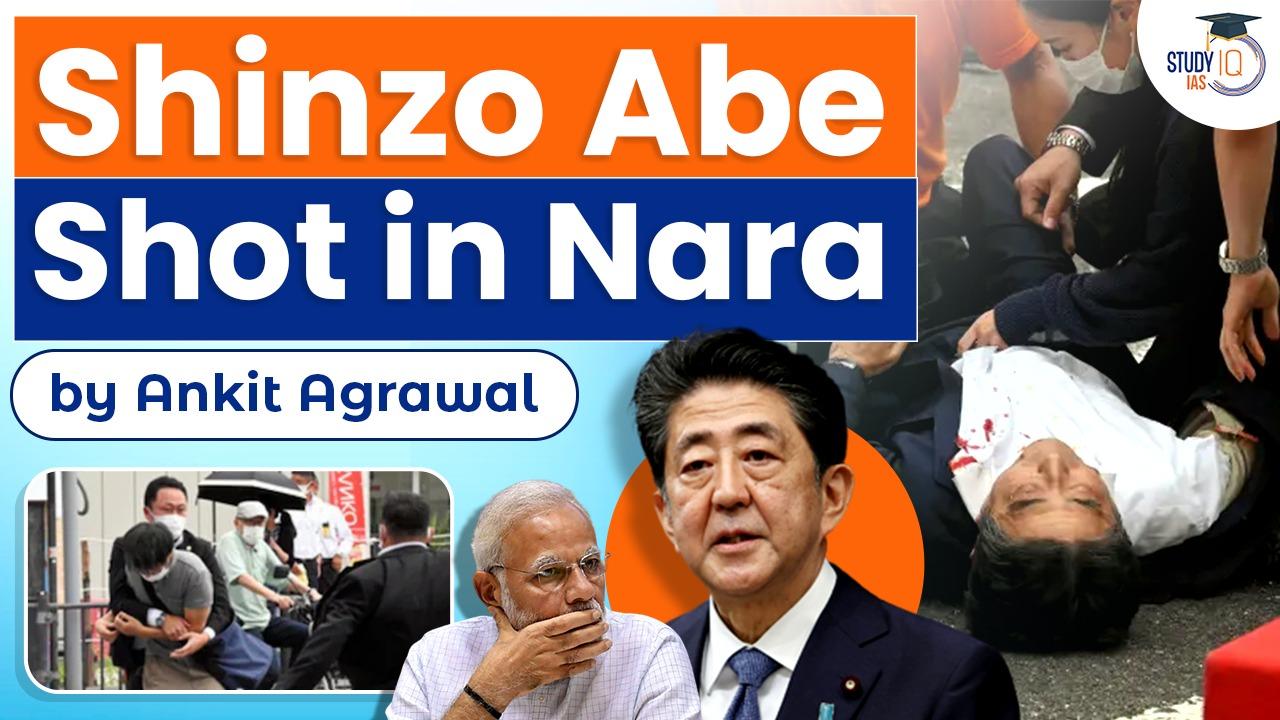Table of Contents


What has happened?
- Japan’s former Prime Minister Shinzo Abe has been shot while delivering a campaign speech in the western city of Nara, according to officials.
- Chief Cabinet Secretary Hirokazu Matsuno told reporters on Friday that he did not know Abe’s condition,
- But the NHK public broadcaster, citing the local fire department, said the 67-year-old “is showing no vital signs”.

- Matsuno said Abe had been shot at about 11:30am (02:30 GMT), and said that “such an act of barbarity cannot be tolerated”.
- NHK, citing Japanese police, said Abe appeared to have been shot from behind with a shotgun and said its reporter on the scene heard “what sounded like a gun going off twice”.
- The broadcaster aired footage showing Abe collapsed on the street, with several security guards running towards him.
- Abe was holding his chest when he collapsed, with his shirt smeared with blood.
But why was he campaigning?
- The agency said the former prime minister, who was in Nara campaigning ahead of Sunday’s election for the parliament’s upper house, was attacked on a street near the Yamatosaidaiji Station in Nara.
- A 41-year-old male suspect has been taken into custody on suspicion of attempted murder, NHK said.
- The suspect, who was identified as Yamagami Tetsuya, was holding a gun, which police confiscated, it added.
Gun control laws in Japan
- Some countries in the world have taken steps that can provide a window into what successful gun control looks like.
- Japan, a country of 127 million people and yearly gun deaths rarely totaling higher than 10, is one such country.
- “Ever since guns entered the country, Japan has always had strict gun laws,” Iain Overton.
- “They are the first nation to impose gun laws in the whole world, and I think it laid down a bedrock saying that guns really don’t play a part in civilian society.”
History behind it
- Japan’s success in curbing gun deaths is intimately linked with its history. Following World War II, pacifism emerged as one of the dominant philosophies in the country.
- Police only started carrying firearms after American troops made them, in 1946, for the sake of security.
- It’s also written into Japanese law, as of 1958, that “no person shall possess a firearm or firearms or a sword or swords.“
- Government has since loosened the law, but the fact Japan enacted gun control from the stance of prohibition is important.
- If Japanese people want to own a gun, they must attend an all-day class, pass a written test, and achieve at least 95% accuracy during a shooting-range test.
- Then they have to pass a mental-health evaluation, which takes place at a hospital, and pass a background check, in which the government digs into their criminal record and interviews friends and They can only buy shotguns and air rifles – no handguns – and every three years they must retake the class and initial exam.
- Japan has also embraced the idea that fewer guns in circulation will result in fewer deaths.
- In 2014, there were just six incidents of gun deaths in Japan, as compared to 33,599 in the US.
Shinzo abe’s term
- Mr Abe, who was Japan’s longest-serving prime minister, held office in 2006 for a year and then again from 2012 to 2020, before stepping down citing health reasons.
- He later revealed that he had suffered a relapse of ulcerative colitis, an intestinal disease.
- While he was in office, he was known for his hawkish policies on defence and foreign policy, and has long sought to amend Japan’s pacifist post-war constitution.
- He also pushed for an economic policy that came to be known as “Abenomics” – built on monetary easing, fiscal stimulus and structural reforms.
- He was succeeded by his close party ally Yoshihide Suga, who was later replaced by Fumio Kishida.

Q) Which country was defeated by Japan in 1904-1905?
- USA
- China
- Philippines
- Russia
Latest Burning Issues | Free PDF























 WhatsApp
WhatsApp